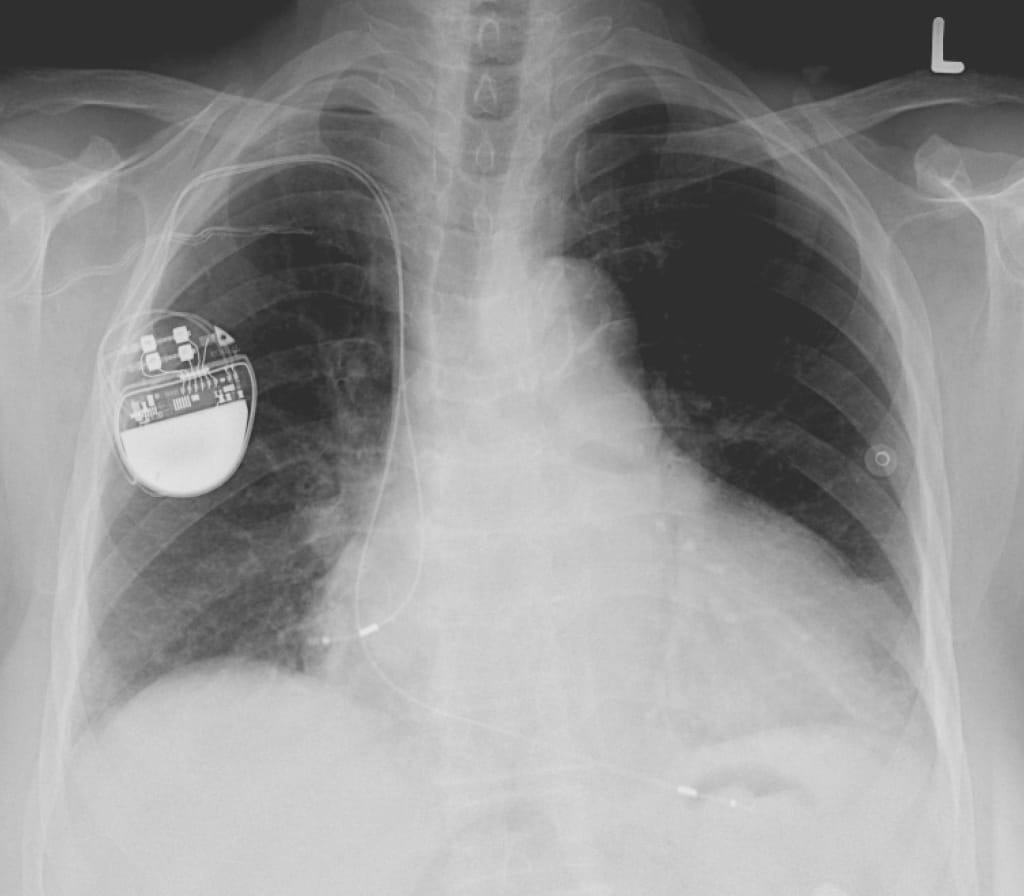
Shirley Branson felt a twinge in her chest. At age 98 she had felt many things in her chest – love, congestion, indigestion, pride, and pressure among them. But rarely if ever a twinge.
She shuffled across the sitting room of her assisted living apartment. The tennis balls on the back feet of her walker made scuffing sounds as the rubbed against the carpeted floor, but she didn’t notice. It had been 2 years since she could hear the tea kettle, 1 year since she had made tea. Now the only thing she could hear was sometimes the doorbell or snatches of conversation. If she turned the television up to almost maximum she could hear it, but then she knew it would bother all her neighbors, so she just turned it on to watch the pictures while she knitted. She knitted mostly to keep her hands busy.
Keeping her hands busy was a familiar problem. 38 years after quitting smoking she still had a nagging urge for a cigarette from time to time, especially if she was idle. The irony struck her that she quit smoking so she wouldn’t die young. Now that she was 98 she might as well smoke, but didn’t.
She felt a familiar hitch in her chest as the pacemaker her doctor had implanted shocked her heart into a normal rhythm.
“Cardiac arrhythmia can be dangerous, Shirley,” he said. “We want to keep you around for a long time.”
Reaching the lamp in the corner of the sitting room, Shirley looked up at the MedAlert sensor in the ceiling, then at the corresponding speaker sitting on the end table. She smiled faintly and pulled the pendant off over her head and hung it on the lamp shade. Satisfied that no alarm would sound, she made her way to the bedroom and opened the drawer of her nightstand.
Inside, next to her mother’s antique compact, her box of straight pins, and her Bible, was the bar magnet her grandson gave her ten years earlier. About the size, shape, and color of a stick of butter, it weighed considerably more, well over a pound.
The magnet was Bobby’s solution when Shirley took in a stray Persian mix she named Sir. Sir was skittish when she found him but settled down after a few days in her home. At his first check-up, the vet told Shirley two surprising things: One, he had numerous partially healed injuries consistent with abuse, including a hernia and cracked ribs. Two, he had an I.D. chip in his neck.
“Our chip reader isn’t working right now, Shirley. But if you want you can set up an appointment to stop in, we’ll check the progress of those injuries, and we can scan it for you.” He paused, then said, “I’m glad your cat has found a good home.”
The doctor’s meaning was clear, and it should have been reassuring, but it put Shirley in a panic. She even had nightmares of random people coming to her house, scanning Sir’s neck, and taking him away. When Bobby heard about this, he bought the magnet.
“I got it at American Science and Surplus. It’s strong enough to scramble the chip in his neck. Just be sure to keep it away from electronics. Your radio, the TV screen, the microwave, anything you have that’s electrical is likely to go haywire if it’s within a foot of the magnet. Be careful.”
He held the magnet to Sir’s neck for a full minute, then put it in the drawer. That ended the nightmares, and she and Sir were happy together for 8 years before he passed.
Bobby was just 35 when he gave her the magnet, one of her 5 grandchildren. Now he was 45 and his oldest, one of Shirley’s 23 great-grandkids, was about to graduate college. Last year, the oldest of Shirley’s 2 children died at age 75, just months after the birth of Shirley’s first great-great –grandchild. She couldn’t remember which of her great-grandchildren gave birth to the little girl. She thought it was Patsy or Peggy, but with 23 great- grandkids it really could have been any of them. She lost track after 20.
Shirley picked up the magnet and made her way to the bed. She felt the jolt of her pacemaker again and felt a bit light-headed. She climbed into bed and rested the hand with the magnet on her chest, above her heart. After a minute she felt a twinge again, stronger, but no kick from her pacemaker.
She closed her eyes, settled into the pillows, and thought of her favorite day. She was 8 years old, at her family’s summer cabin in Northern Wisconsin, walking back from Little Kitten Lake, holding her Daddy’s hand. His hand was big, rough, and warm, dwarfing her tiny hand. Mama was outside the cabin, wearing her sunbonnet, fanning herself with an old magazine. Shirley held up the fish she’d caught with Daddy.
“Looks like we’re having perch tonight,” Mama said. “Aren’t you a good girl.”
In her memory, young Shirley smiled, just as old Shirley was smiling now, remembering every details of mama’s dress, her eyes, her smile, her hair.
She drifted away.
About the Creator
Gene Lass
Gene Lass is a professional writer, writing and editing numerous books of non-fiction, poetry, and fiction. Several have been Top 100 Amazon Best Sellers. His short story, “Fence Sitter” was nominated for Best of the Net 2020.






Comments
There are no comments for this story
Be the first to respond and start the conversation.